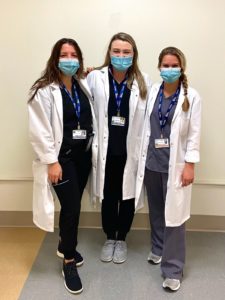While working in a skilled nursing facility, Speech Therapy needs to present with great communication skills throughout the facility while modeling positive, professional dialogue with nurses, doctors, other therapists as well as the residents.
Working closely and collaboratively with the dietician is paramount to a proper speech program. Why? Because dieticians and diet techs bring SLPs valuable information on the residents’ food preferences, unexplained weight loss, lab changes, changes in eating habits, as well as a myriad of other information.
Through my years of working in SNFs, I have had the pleasure of working with some great dietary staff. I have also had the eye-opening experience of what can happen when relationships between dietary and SLPs are less than positive. Below are some of the important factors that demonstrate the need and effectiveness of great collaboration:
Assessments: As stated above, Dietary is typically one of the first to receive information on weight changes including significant unexplained weight loss. In most of these cases, speech should be involved to assess if there are any swallowing/dysphagia concerns that contributed to the weight loss. Often, speech can play a pivotal role in maintaining and even increasing weight, when appropriate, by increasing muscle strength and endurance. Teaching compensatory strategies that allow for increased caloric intake and simply give the resident confidence to eat safely and functionally.
Diet Upgrades: Evaluating a resident for a diet upgrade and bringing that resident back to their prior level of function is a favorite task of mine. Dietary staff meets with each resident on a regular basis to discuss likes, dislikes, and ways to improve the dining experience. When dietary finds out that a resident would really love to be upgraded and lets the SLP know, he or she then can review and assess the resident for safety.
Trial trays and foods allow the clinician to assess the resident for safety, strength, and ability to tolerate foods and fluids of a more natural consistency. As a result, residents are readied to tolerate an upgraded diet. This is an area for a qualified clinician. When walking into a building that has been without proper speech, we have seen dietary trying to tackle this on their own, which scary at the best of times and risky not only to the resident but to the facility as well.
Documentation: Clear lines of communication include clear documentation in the medical record. Acknowledgment and documentation of problem areas and treatment by other professions helps tell the story in the medical record. It demonstrates that the facility has identified an area of concern and has taken steps to address it. Congruent documentation from dietary and speech (and nursing too!) helps describe the quality of care each facility should try to achieve.
Want to share your thoughts? I’d love to hear.



